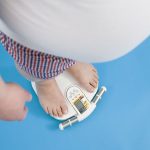
There’s bad news and good news in a study of lives lost to suicide around the world. In sheer numbers, more of the world’s people are dying by suicide each year than ever before, the new report reveals. In 2016, about 817,000 deaths worldwide were attributed to suicide, the study showed. That’s an increase from the 762,000 suicides calculated for 1990. However, after the researchers adjusted their numbers for changes in age and population size, they found that the suicide fatality rate actually decreased by nearly a third between 1990 and 2016. Only further study can determine whether the decline is due to better suicide prevention efforts or to general improvements in population health, the researchers said. The analysis of data from the 2016 Global Burden of Disease Study also found that the worldwide rate of suicide death was higher among men (15.6 deaths per 100,000) than women (7 deaths per 100,000). However, that wasn’t true for most countries with what the researchers called a “low sociodemographic index” — a measure of fertility, income and education. In those nations, women had higher suicide rates than men, according to the study published Feb. 6 in the BMJ. The researchers were led by Mohsen Naghavi, a professor of health metrics at the University of Washington in Seattle. He and his colleagues said the wide variations in suicide… read on >



























-300x200.jpg)










